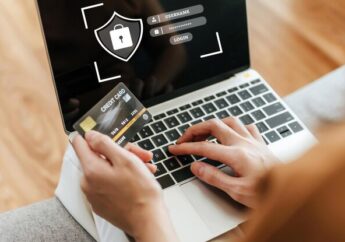How To Protect Your Data
by Sumona Business Security Systems 29 June 2022

In recent years, the world has become increasingly conscious of data.
Touted as one of the most valuable tools to keep in your arsenal as a business, data can help companies identify opportunities, delve into customer behavior and predict market conditions.
As data is so valuable, it’s no surprise that the UK is on the brink of a major cyber-attack. If you’d like to protect yourself and your business from threats, read on.
Top Tips To Protect Your Data
Overview:
- Embrace encryption
- Stay updated
- Implement a need-to-know basis
- Train employees
1. Embrace encryption
One way to ensure data security is to embrace encryption. Data encryption is a process that scrambles text in a way that means it can only be read by a person who has the code, or key.
This means that by encrypting your data, you are making it difficult for hackers or bots to read data on both the sending and receiving end. This is especially important given that 39% of UK businesses have been victims of cyberattacks.

One easy way to protect your data is by encrypting a USB stick as well as the individual files stored on it. That way, you can avoid being on the receiving end of an attack.
2. Stay updated
As well as keeping up to date with the latest legislation, keeping your systems up to date is a sure-fire way to stay protected.
It may seem like a tedious task, especially as you’ve got plenty of other things to be thinking about, but keeping up to date with your software can ensure your technology is safe.
3. Implement a need-to-know basis
Chances are, in most companies, not every employee needs access to all the company data. As such, it’s good practice to implement a need-to-know basis.
Most employees should be free to access the data they use daily (for example, the marketing department should have access to customer data) but other data should be securely locked away.

By keeping valuable data locked and not accessible to all employees, you can reduce the risk of a data breach or hackers gaining access to important data that you don’t want to be leaked.
4. Train employees
Finally, it’s important to train your employees properly. Whilst all customer-facing employees will have had thorough GDPR training to teach them how to handle data, it’s also important to ensure your staff knows what to do in the event of a cyberattack. By setting up drills that help employees spot phishing emails or internal data breaches, you can improve your data handling skills and avoid breaches.
Final thoughts…
Although protecting your data isn’t top on the list of ‘fun things to do’, it’s important if you’re going to keep your (and your customers’!) valuable data secure as a business.
If you haven’t already taken steps to secure your data, what’s stopping you?
Additionals:







































































































